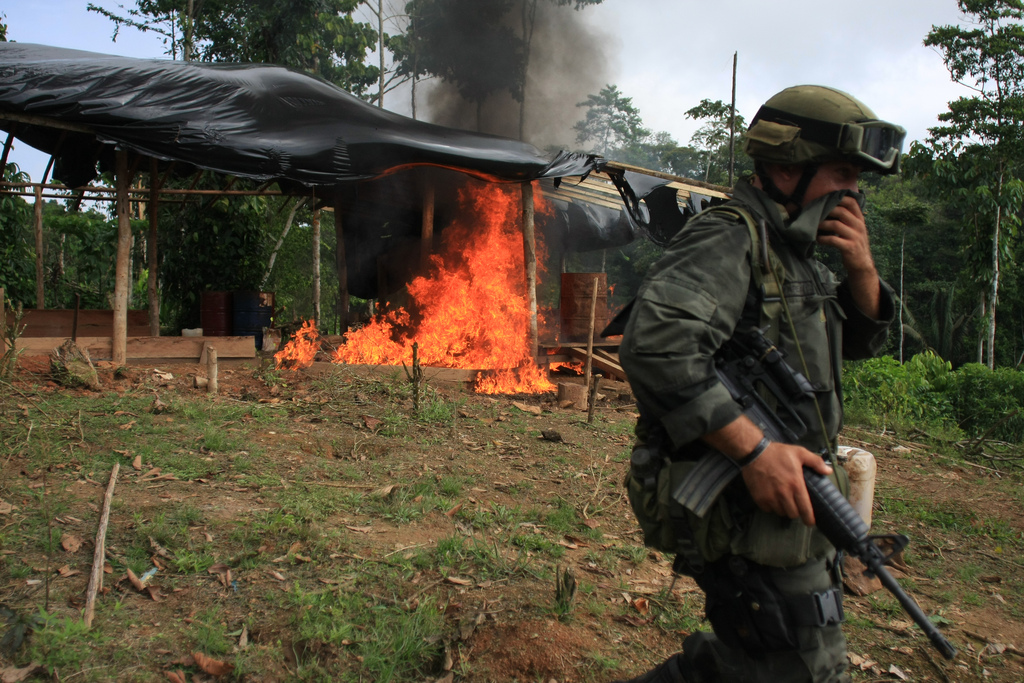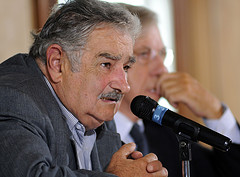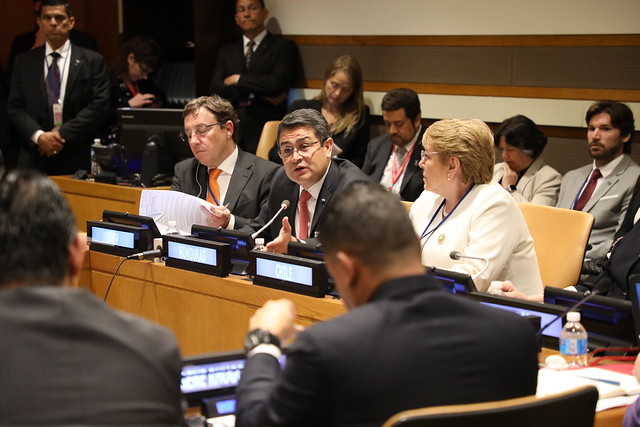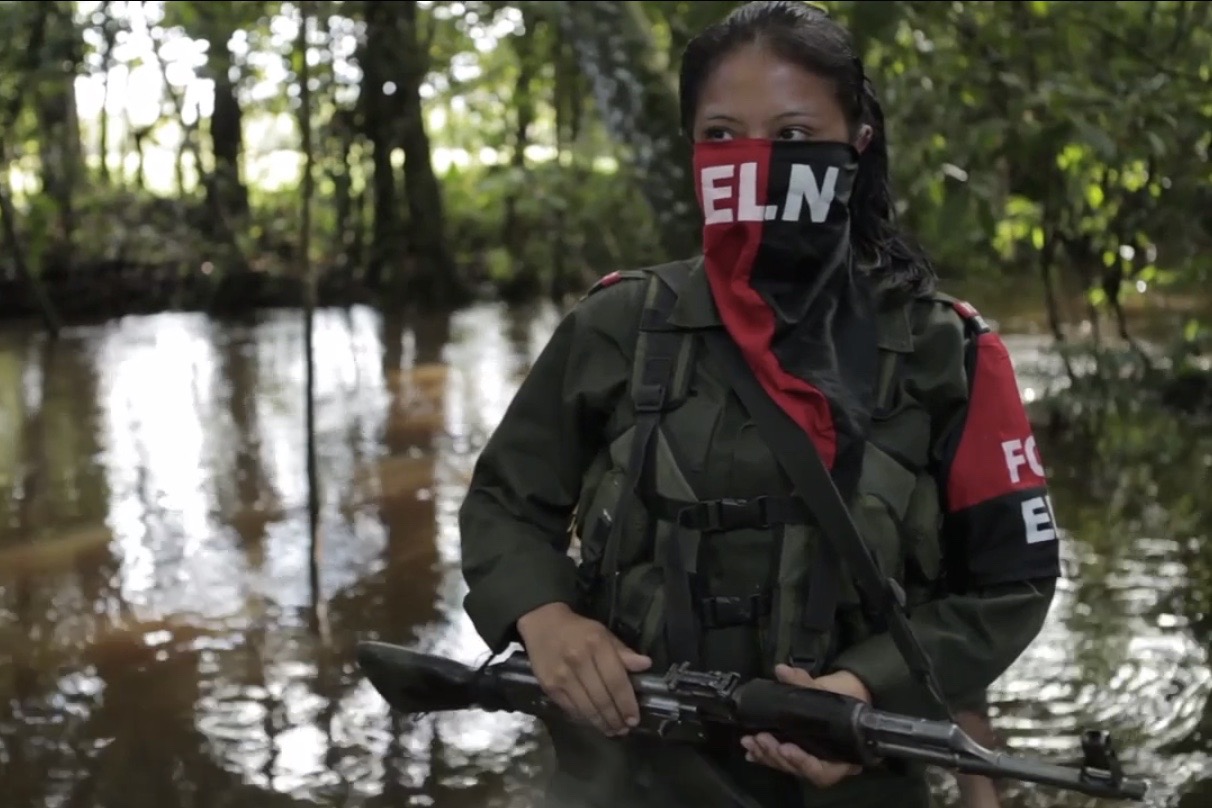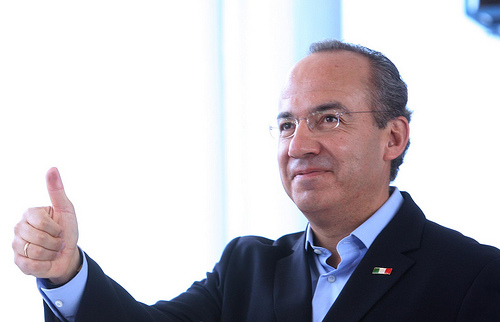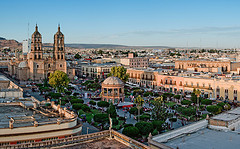
Latin America: Week in Review
Wyclef Jean May Run For President of Haiti In 2010
July 27, 2010 By Staff

Musician Wyclef Jean is thinking of running for president of Haiti.
Today in Latin America
Top Story — Musician Wyclef Jean said that he is thinking of running for the presidency of earthquake ravaged Haiti, but has yet has yet to decide whether to declare himself as a candidate.
Wyclef Jean, who rose to fame in the 1990s as a member of the hip-hop group the Fugees and with a string of successful solo albums, was appointed ambassador-at-large for Haiti in 2007 by President René Préval. Since the appointment rumors have swirled about the Haitian-born entertainer’s intentions for the 2010 presidential elections.
“Wyclef’s commitment to his homeland and its youth is boundless, and he will remain its greatest supporter regardless of whether he is part of the government moving forward … If and when a decision is made, media will be alerted immediately,” Wyclef’s family said in a statement, according to the Associated Press.
According to CNN, Wyclef has already filled out the necessary paperwork to become a candidate in Haiti’s elections. The musician has been an outspoken advocate for Haitian aid and was one of the first celebrities to travel to Haiti after the January 12 earthquake that ravaged much of the island nation.
Wylcef, 37, was born in the Haitian capital of Port-au-Prince, but moved to the New York City borough of Brooklyn as a young child. He said he voted for current-President Préval in the 2006 elections.
Rene Préval is unable to run for president of Haiti due to term limits.
Just Published at the Latin America News Dispatch
- The Organization of American States has asked the U.S. to reconsider its refusal of Colombian journalist Hollman Morris’ visa to accept a fellowship at Harvard’s Nieman Institute. (You may remember Hollman Morris from The Latin America News Dispatch’s special report on Colombia’s disgraced intelligence service.)
- The Board of Immigration Appeals is reviewing the case of Lesly Yajayra Perdomo. The board’s decision may make it easier for Guatemalan women to claim asylum in the United States, based on the argument that they face high levels of violence in their home country. Read more at the latest installment of Alison Bowen’s blog, Beyond Borders.
Headlines from the Western Hemisphere
North America
- Mexico’s National Human Rights Commission sent inspectors Monday to the country’s border with the United States to monitor deportations that might result when Arizona’s immigration law takes effect on Thursday.
- Prisoners and family members protested in Gomez Palacio, Mexico for the return of the prison director who allegedly allowed inmates out to commit killings.
Caribbean
- Neither Fidel nor Raúl Castro spoke at Cuba´s July 26 celebration Monday. Venezuelan President Hugo Chávez, who had been scheduled to attend, canceled over the weekend, citing problems with neighboring Colombia.
- Musician Wycleff Jean is considering running for President of Haiti.
- Dengue fever-related deaths rose to 24 in the Dominican Republic, the government announced Monday.
Central America
- A couple suspected of committing multiple murders in Panama was apprehended on the border between Costa Rica and Nicaragua on Monday.
- The Committee to Protect Journalists criticized the Honduran government’s failure to investigate the murders of seven journalists in a three-month period this year.
- Guatemalan police seized $240,000 Saturday from two men suspected of money laundering.
- Yielding to pressure from human rights and student groups, Nike agreed to pay $1.54 million in compensation to Honduran workers who were laid off last year.
Andes
- Venezuelan President Hugo Chávez sent additional troops to the country’s border with Colombia in anticipation of an attack.
- A U.S. State Department spokesperson said that the U.S. does not intend to use military force against Venezuela as its standoff against Colombia continues.
- The EU Commission’s High Representative for Foreign Affairs announced that it would closely follow Bolivia’s investigation into the killing of three EU citizens by antiterrorist police.
- The Ecuadorian government enacted a law that will increase state control of oil companies.
Southern Cone
Image: jdlasica @ Flickr.
